Filter by
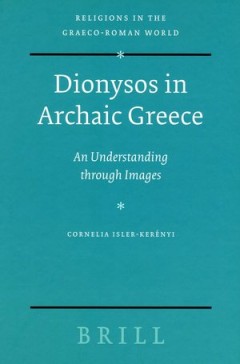
Dionysos in Archaic Greece : An Understanding Through Images
For the Greek, Dionysos was a very important god: for individuals as well as for the community as a whole. As there are only a few written sources dating from before the 5th Century BC the many images of Dionysos on Greek vases may well offer a genuine approach to the meaning given by the ancient viewer. This book explores the earliest images followed by those on small vases for private use, o…
- Edition
- -
- ISBN/ISSN
- 9789004144453
- Collation
- xx, 292 halaman
- Series Title
- -
- Call Number
- 200 ISL d

Authority and Performance : Sociological Perspectives on the Council of Chalc…
One can hardly exaggerate the importance of the church councils in the 5th and 6th centuries. They provide us with great insights into the situation in the late Roman Empire and particularly into the role of the Church at that time. Because of the rich source materials, the dramatic course it took and its overall historical relevance, the Council of Chalcedon (AD 451) is one of the most importa…
- Edition
- -
- ISBN/ISSN
- 9783525208687
- Collation
- -
- Series Title
- -
- Call Number
- 900 AMI a
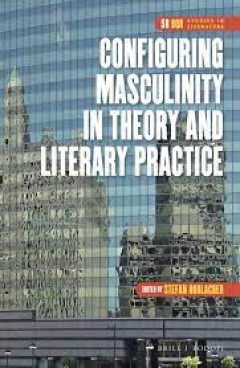
Configuring Masculinity in Theory and Literary Practice
Configuring Masculinity in Theory and Literary Practice combines a critical survey of the most current developments in the emergent field of Masculinity Studies with both a historical overview of how masculinity has been constructed within British Literature from the Middle Ages to the present and a special focus on developments in the 20th and 21st centuries. The volume combines seminal articl…
- Edition
- -
- ISBN/ISSN
- 9789004299009
- Collation
- 328 halaman
- Series Title
- DQR Studies in Literature, Volume: 58
- Call Number
- 800 CON
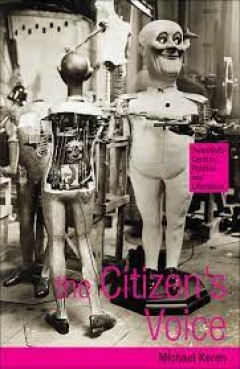
The Citizen's Voice : Twentieth-Century Politics and Literature
Michael Keren traces the political lives and messages of some of the twentieth century’s greatest literary characters in this insightful and jargon-free book of literary criticism. He observes the infamous characters ranging from Joseph K from Franz Kafka’s The Trial to Ralph from William Golding’s Lord of the Flies to Chauncey Gardiner from Jerzy Kosinski’s Being There and beyond while…
- Edition
- -
- ISBN/ISSN
- 9781552386699
- Collation
- -
- Series Title
- -
- Call Number
- 800 KER c

Effects of Including Agricultural Products in the Customs Union between Turke…
The inclusion of agricultural products in the current customs union is one of the potential future steps on the road to further political and economic integration between Turkey and the EU. This book examines the effects of such integration of agricultural markets on the Turkish agricultural sector as well as on consumers and the Turkish budget. Results are compared to alternative options for T…
- Edition
- -
- ISBN/ISSN
- 9783631519349
- Collation
- 336 halaman
- Series Title
- -
- Call Number
- 630 GRE e

Eating Identities : Reading Food in Asian American Literature
Eating Identities' is the first book to link food to a wide range of Asian American concerns such as race and sexuality. Xu provides lucid and informed interpretations of seven Asian American writers (John Okada, Joy Kogawa, Frank Chin, Li-Young Lee, David Wong Louie, Mei Ng, and Monique Truong), revealing how cooking, eating, and food fashion Asian American identities in terms of race/ethnicit…
- Edition
- -
- ISBN/ISSN
- 9780824831950
- Collation
- -
- Series Title
- -
- Call Number
- 800 XUW e
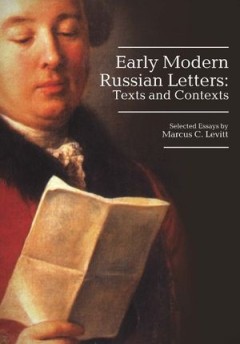
Early Modern Russian Letters : Texts and Contexts
Early Modern Russian Letters: Texts and Contexts brings together twenty essays by Marcus C. Levitt, a leading scholar of eighteenth-century Russian literature. The essays address a spectrum of works and issues that shaped the development of modern Russian literature, from authorship and philosophy to gender and religion in Russian Enlightenment culture. The first part of the collection explores…
- Edition
- -
- ISBN/ISSN
- 9781934843680
- Collation
- -
- Series Title
- -
- Call Number
- 800 LEV e
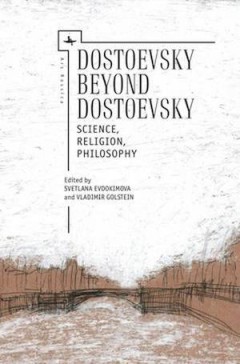
Dostoevsky beyond Dostoevsky : Science, Religion, Philosophy
Dostoevsky beyond Dostoevsky is a collection of essays with a broad interdisciplinary focus. It includes contributions by leading Dostoevsky scholars, social scientists, scholars of religion and philosophy. The volume considers aesthetics, philosophy, theology, and science of the 19th century Russia and the West that might have informed Dostoevsky's thought and art. Issues such as evolutionary …
- Edition
- -
- ISBN/ISSN
- 9781618115263
- Collation
- 424 halaman
- Series Title
- Ars Rossica
- Call Number
- 100 EVD d
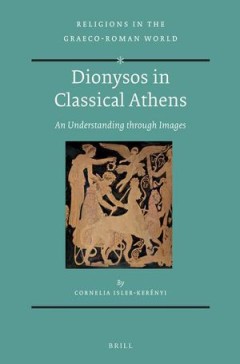
Dionysos in Classical Athens : An Understanding through Images
"Dionysos, with his following of satyrs and women, was a major theme in a big part of the figure painted pottery in 500-300 B.C. Athens. As an original testimonial of their time, the imagery on these vases convey what this god meant to his worshippers. It becomes clear that he was not only appropriate for wine, wine indulgence, ecstasy and theatre. Rather, he was present on many, both happy and…
- Edition
- -
- ISBN/ISSN
- 9789004270121
- Collation
- xx, 290 halaman
- Series Title
- Religions in the Graeco-Roman World, Volume: 181
- Call Number
- 900 ISL d
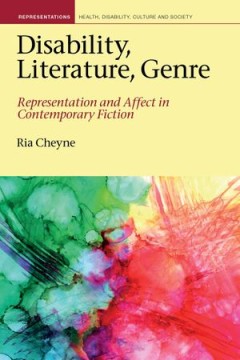
Disability, Literature, Genre : Representation and Affect in Contemporary Fic…
Examining the intersection of disability and genre in popular works of horror, crime, science fiction, fantasy, and romance published since the late 1960s, Disability, Literature, Genre is a major contribution to both cultural disability studies and genre fiction studies. Drawing on recent work on affect and emotion, the book explores how disability makes us feel, and how those feelings shape i…
- Edition
- -
- ISBN/ISSN
- 9781789620771
- Collation
- -
- Series Title
- Representations: Health, Disability, Culture and Society
- Call Number
- 800 CHE d
 Computer Science, Information & General Works
Computer Science, Information & General Works  Philosophy & Psychology
Philosophy & Psychology  Religion
Religion  Social Sciences
Social Sciences  Language
Language  Pure Science
Pure Science  Applied Sciences
Applied Sciences  Art & Recreation
Art & Recreation  Literature
Literature  History & Geography
History & Geography